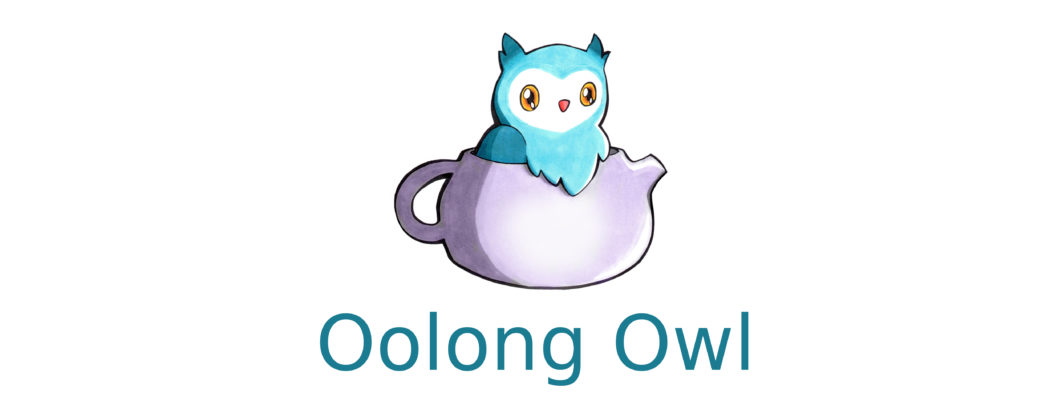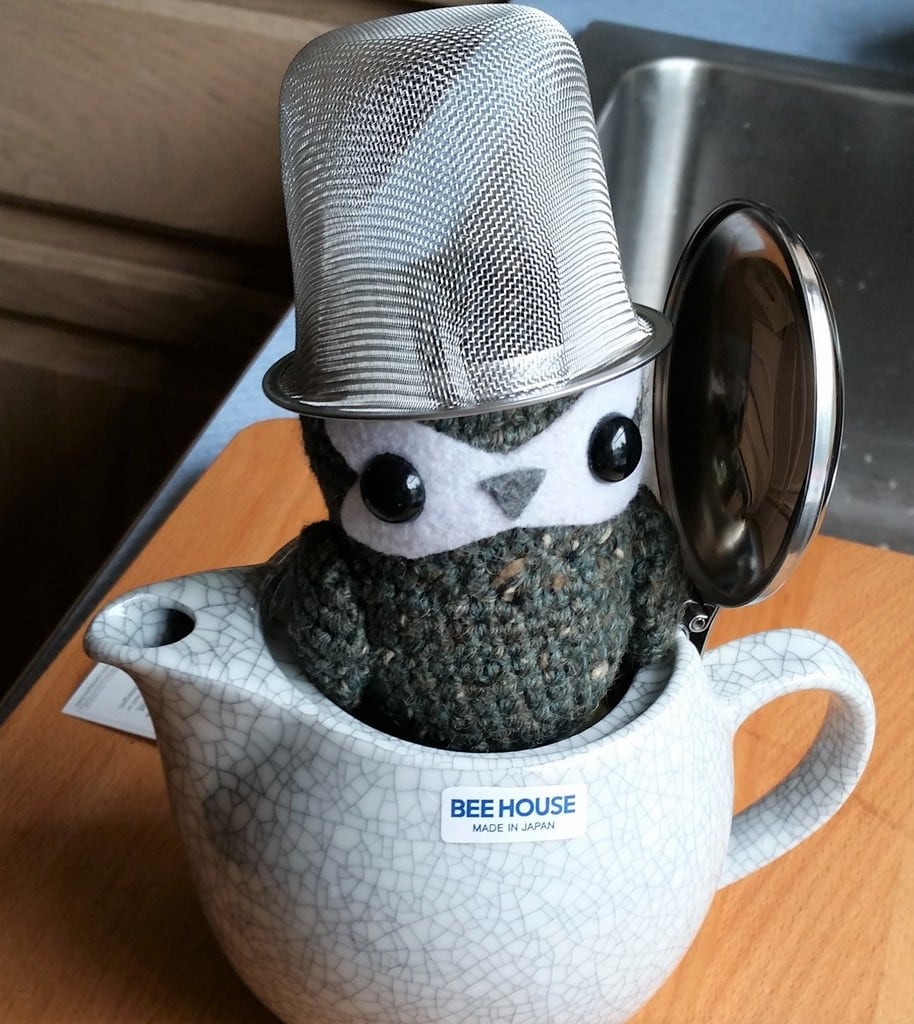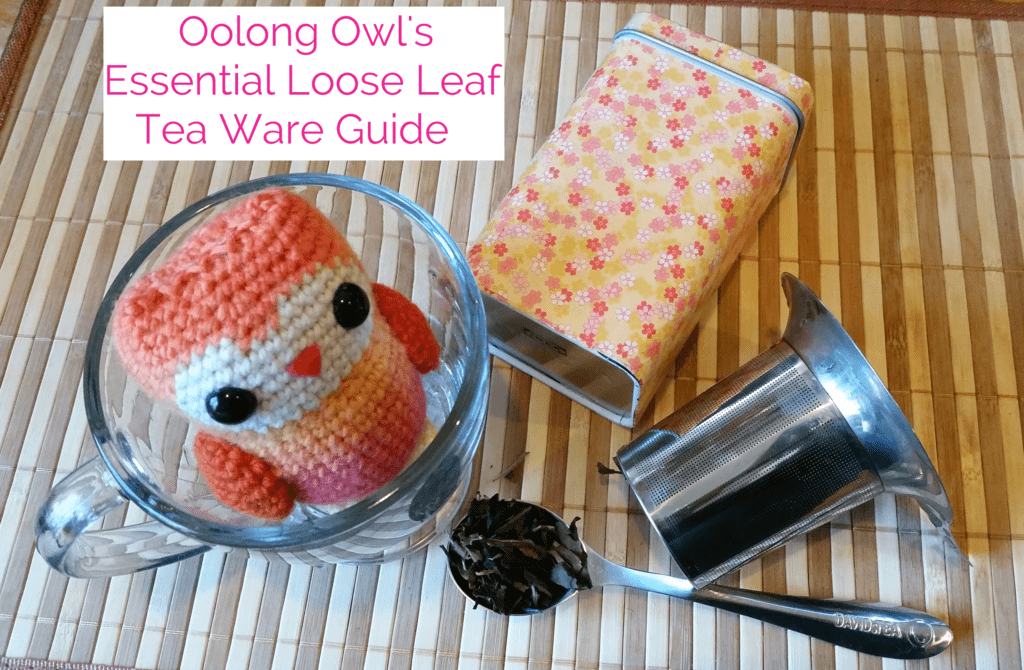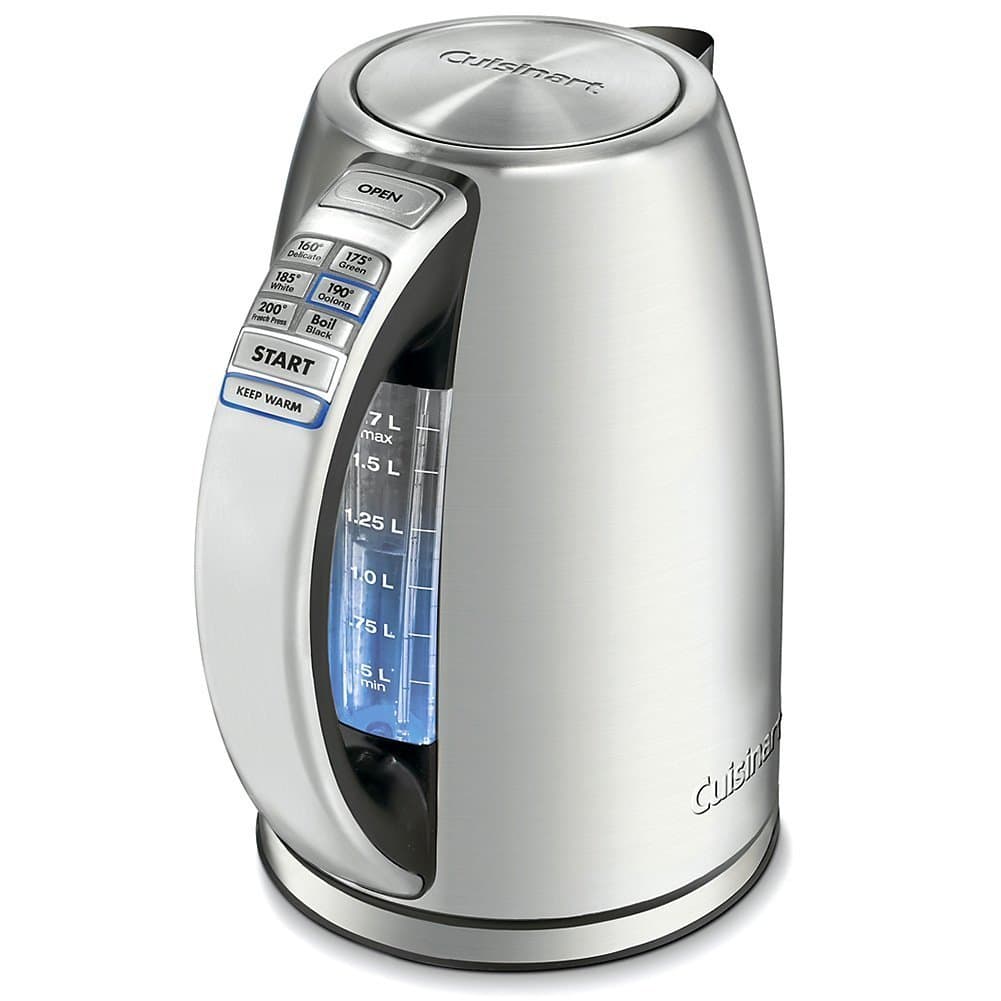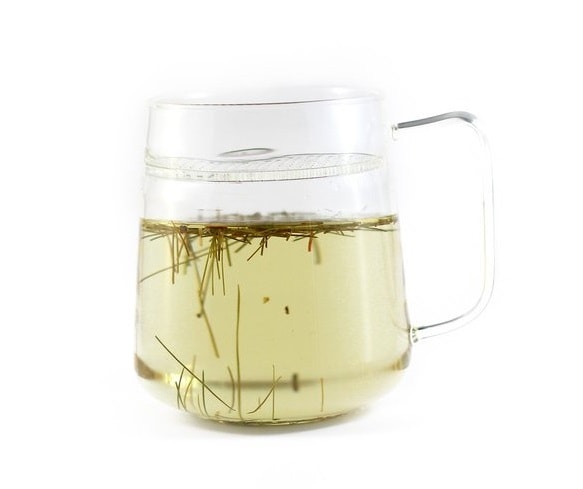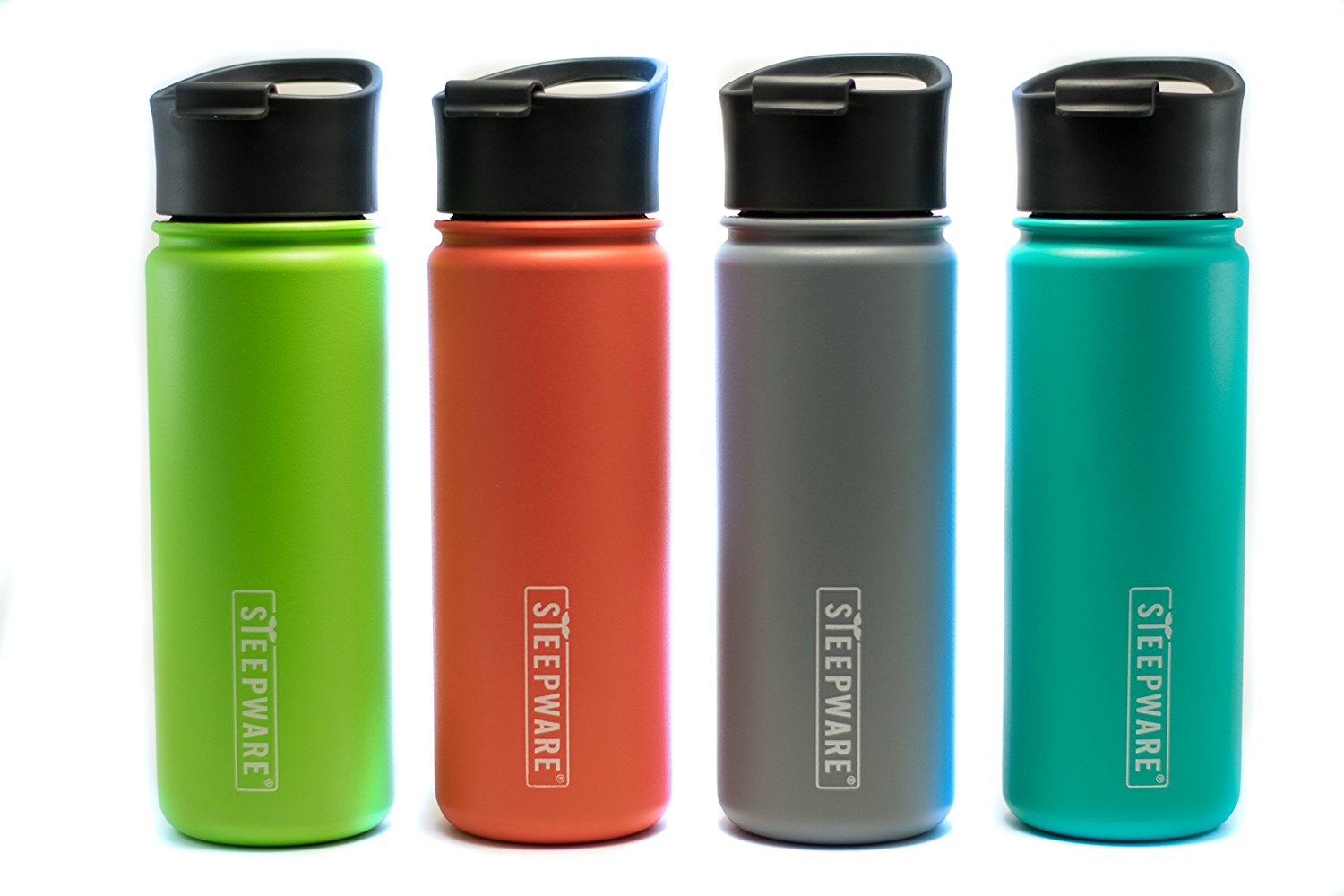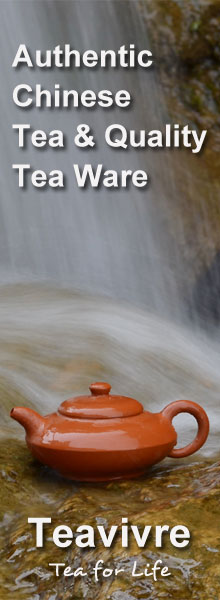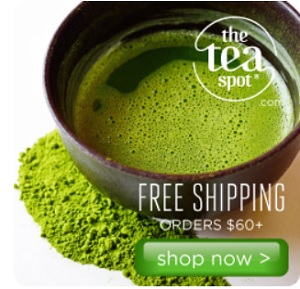Today’s teas are from a new Canadian shop, Durumi Tea Company. Durumi specializes in fine Korean teas and sent me their Twin Pack. I leap at any chance to get some Korean tea, so let’s get drinking.
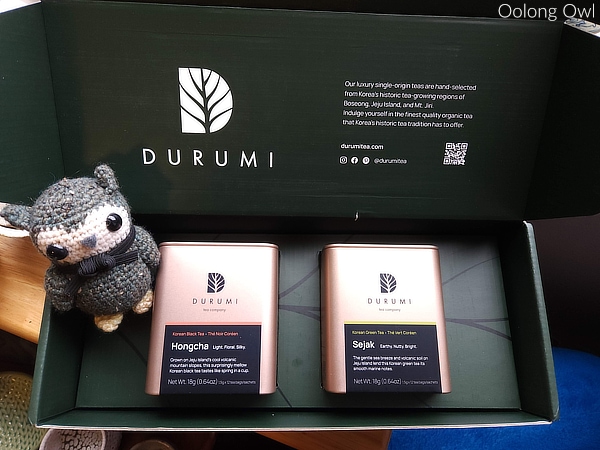
Sejak from Durumi Tea Company
This Sejak from Durumi is from Jeju Island. I rarely drink green tea, but I don’t mind Sejak – there’s something so smooth, mild, and elegant about it over other green teas. A tea bag wasn’t big enough for me to get a smell off the dry leaves – maybe vegetal? I took this one out of the bag as the leaves looked pretty intact and I wanted to see how green they were.
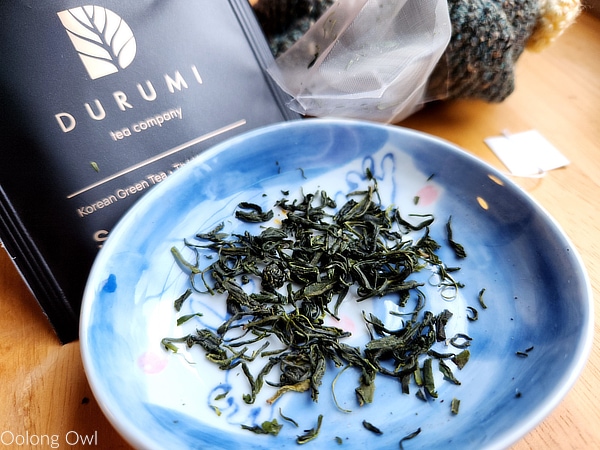
For all the teas today, I followed the instructions on the tin exactly – brew a teabag in 170ml of 80c (or 90c) water for 2 minutes. After an infusion, the leaves are delicately buttery and grassy.
First and Second Infusion: Durumi’s Sejak is soft, and buttery at first, then sips sweet bright pine nuts and mineral water. The broth is thick and like melted butter, but also creates a lot of salivation. After drinking, the aftertaste is a gentle sweetness that is slightly vegetal.
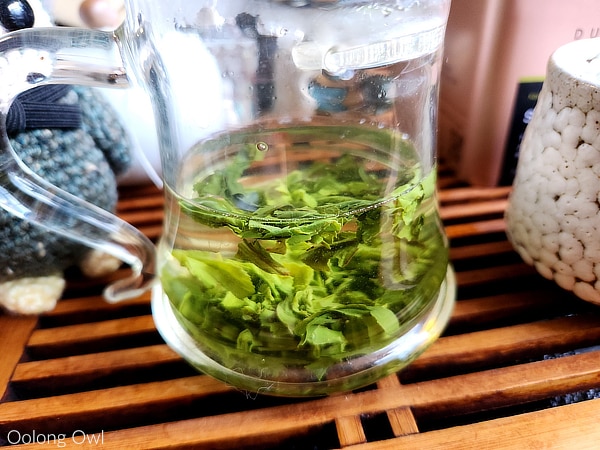
The second infusion opens more flavor, becoming even sweeter, tasting of nutty pinenuts and chestnuts, sweet spring grass. The aftertaste is somewhat grassy floral.
Third Infusion: Final infusion and Durumi’s Sejak is still sweet but more vegetal – a bit like very sweet peas. It isn’t stewy or bitter at all, but there is a light astringency tickling the back of my throat.
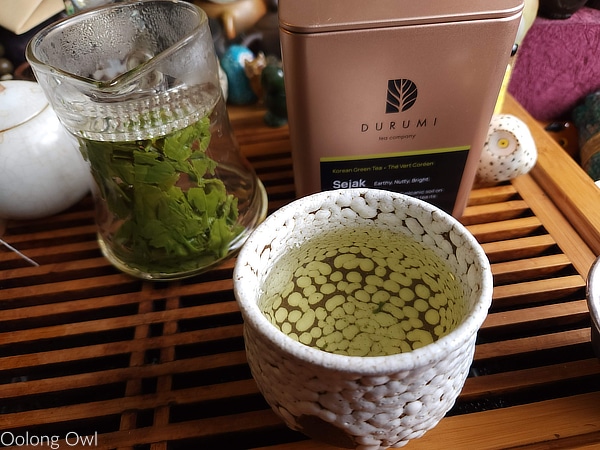
The energy of this tea is hitting me now, making me feel chill but not too low. It caused me to slow down drinking it, to enjoy the smooth broth, despite how easy it is to slam it down.
Durumi Tea Company’s Sejack is a green tea that is both elegant, smooth, and easy to drink. Overall super smooth, buttery, and sweet. No bitter, stewy, or offensive notes. I don’t often like green tea and this is just pleasant and soothing to drink.
Hongcha from Durumi Tea Company
Durumi Tea Company’s Hongcha (Balhyocha) is also from Jeju Island. The leaves have a fragrant fruity scent.
First Infusion: Durumi’s Hongcha is a light black tea, the flavor is soft, but the end of the sip is potently toasted honey wheat bran and dates. The texture is also smoothly buttery, with a light astringency that hits the top of the tongue. A marigold floral aroma emerges as the aftertaste.
Second Infusion: This tea shifted richer to wheat bran and floral peaches, though still quite mild in taste. The aftertastes wafts in more stone fruit, marigolds, and a lingering sweetness.
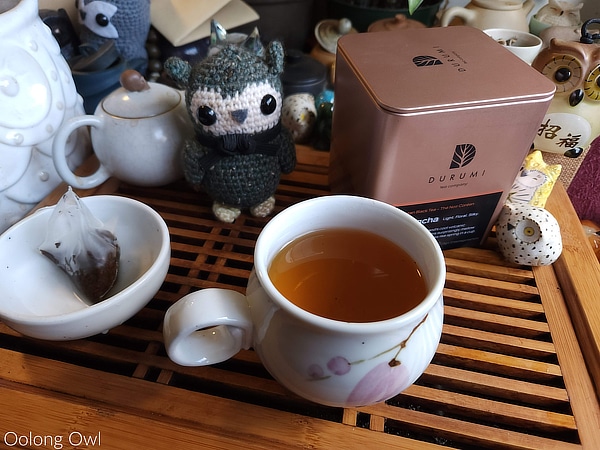
Third Infusion: I left the Hongcha bag in for the final steep and it’s a gentle, woody, honey, mineral in flavor. The end of the sip gets that wheat bran honey note. In the end, Durumi’s Hongcha never got bitter, and just a bit of astringency.
I tried Durumi’s Hongcha again, steeped at around 87 to 90c (190-195F), lazy style with the bag in, refilling with more water as I drink. This way was stronger in flavor with sweet honey, woody, fruity, and mineral. Surprisingly, the Hongcha didn’t get bitter or that astringent.
Durumi’s Korean Hongcha is a soft and light black tea with a unique set of notes and a lovely aroma. This black tea would be a great afternoon tea. I really want to eat some snacks on this side of this tea – it would pair well with some Yeongyang-chaltteok rice cake – my current favorite snack I get at my local Korean grocery store.
Out of the two Korean teas, my (surprising) pick is the Sejak. That tea is so smooth, inviting, and easy to drink. It has the most elegance out of the teas, but both teas are excellent. The Hongcha is quite different than other blacks, so worth a try if you like lighter black teas. Though, this is one of the better Korean black teas I’ve had.
(teas provided for review)





